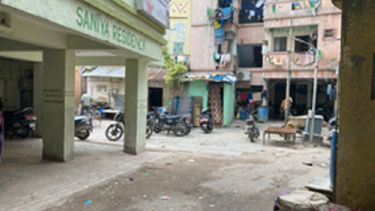Core findings

Pandemic Governance
City-level approaches to the pandemic are shaped by both existing state capacity, but also the dynamics between national and state-level governments.
These put in place different abilities and incentives to reinterpret what at first sight seem to be rigid national guidelines and protocols for Covid management, framed through India’s Disaster Management Act.
As a result, not only are there marked differences in emphasis in Covid management across our cities drawing on these different capacities, but in addition, State- and City-level governments are highlighting different elements of their response to position themselves as effective in governing this crisis.
These performances of governance are therefore embedded in Centre-State political relationships, but also embody different ideas of what constitutes ‘good’ management of a pandemic.
Negotiating Lockdown
India’s national lockdown was strict and experienced over an extended period of time, presenting an impression of total control over people’s movement, not only across cities but also at the micro-level within neighbourhoods.
Attempts to deliver this level of control within cities required new means of persuasion, surveillance and discipline that went far beyond the state’s normal policing capacities.
By contrast, for the low-income communities of our study, the use of public space, movement, and face-to-face interaction were essential to the day-to-day reproduction of lives and livelihoods.
Our work has traced how poor communities find ways to meet these needs within the constraints of lockdown protocols, with contrasting responses across our neighbourhoods varying from compliance to outright contestation.
These differences can be explained through communities’ past experiences of stigmatisation and neglect at the hands of the state (and particularly the police), but also through the mediating roles of those local leaders, frontline health workers and others able to negotiate de facto practices of lockdown in more humane and accommodating ways.
Improvising Welfare
In all the low-income neighbourhoods of our study, the Covid pandemic dramatically disrupted livelihoods: even though some households experienced disease and death (particularly during 2021’s delta wave), it was the resulting inability to meet day-to-day needs that was foremost within their experiences and concerns.
The cities of our study recognised this to differing extents, and here we trace how they sought to ensure that measures for last mile reach provided enhanced welfare support for those who needed it.
Our study is important in showing that city governments can improvise significantly at times of crisis – repurposing their existing structures, personnel and resources to meet needs.
However, the degree to which this is effective within communities is dependent upon the level of state resources at the point of delivery, communities’ linkages with city governance structures (whether through politicians, community leaders or others) that enable them to draw down these resources, and their own capacities to provide ‘backfill’ for shortfalls in this provision.


